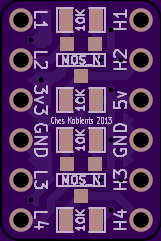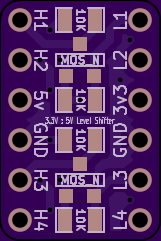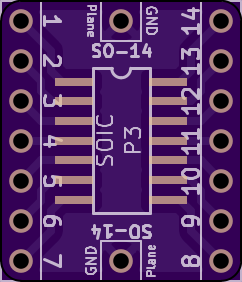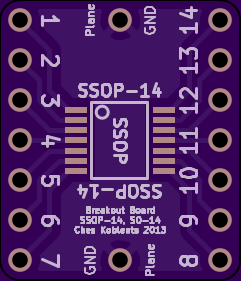Published Nov 19, 2013
So began an era.
Published Nov 14, 2013
If you are looking for a switch designed for direction control, you want something called a navigation switch. There are many types of switches (and joysticks) out there, but it's hard to find one that works well for direction - for example, moving up and down, side to side - as opposed to a general purpose switch. Two examples: one for going up/down, one for a five-position switch (up/down/left/right/middle press.)




Published Nov 13, 2013
Communication programming is a fertile field for ambushing bugs, because many things in communication are random and/or are not under programmer control:
Published Nov 13, 2013
Many programmers sooner or later encounter problems with stable production applications that worked fine for months or years. By that time the original developers forgot all details. Or they do not work with the company anymore.
The problems range from subtle to catastrophic. For example, an application may suddenly crash, or refuses to start, or stops accepting user requests.
Published Nov 13, 2013
I've been searching (not very hard) for a way to compile and program PICs through the command line. Finally found one. I haven't tried this out yet, but it should work with the pickit2.
I have the pickit3 so hopefully I will write an article soon showing XC8 + PK3CMD. Until then, enjoy the link for pickit2!
Published Nov 12, 2013
Two things this week - a 4-channel bidirectional mosfet level shifter (designed for 3.3V and 5V), and a MCP73831/2 test board. The level shifter is first, and the MCP73831/2 test board is after the jump. The level shifter took a while to lay out small enough for me to be satisfied. An explanation of how it works is coming.


Now the MCP73831/2... that gave me grief in a design, so I made a board just for it.
Published Nov 4, 2013
This week in design: Breakout boards.
First, a SOIC-14 and SSOP-14 board. One on each side. It doesn't cost anything extra to have a design on the back, and gives two options for the price of one. Also note the fixes from my previous article regarding pin alignment (and also the longer pins for easier soldering).




The next one was way more annoying to lay out...
Published Nov 1, 2013
Whenever I make a board, and I'm not in a hurry, I stare at the gerbers for a couple days before ordering. Usually I just have an image open in a tab somewhere. It saves me time and time again. Usually from my own carelessness, but occasionally I am allowed to blame the tools. This is one of those times.
Notice anything funny about pin 3?


I'll update this page soon with a fixed KiCAD library for SOIC parts. (Maybe slightly longer pads for easier soldering, too).
Published Nov 1, 2013
Now this is an awesome find. There is a TI part SN74LVC1G97 which offers very basic configurable logic. The seven functions it has are MUX, AND, OR, NAND, NOR, inverter, and noninverter (buffer).
The best part? It only has six pins! Power, ground, three inputs, and one output. Just goes to show what kind of work can be done with K-maps.


You can find the datasheet here. You can also find the SN74LVC1G98, which is the same thing but with an inverter on the end.

